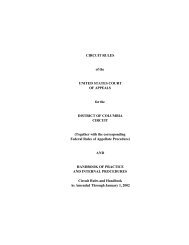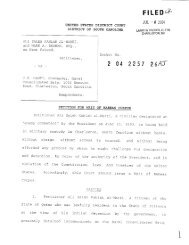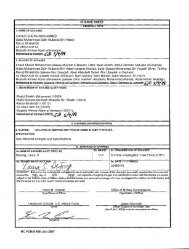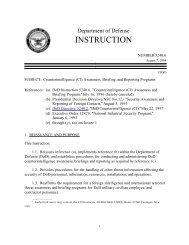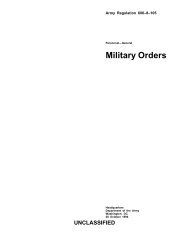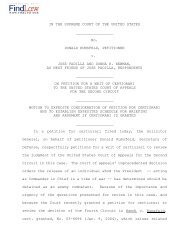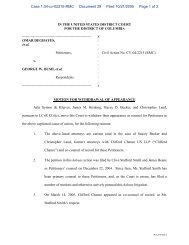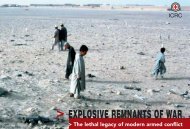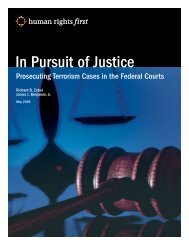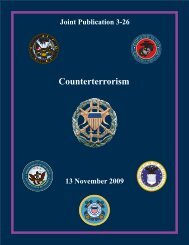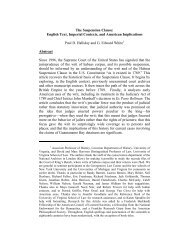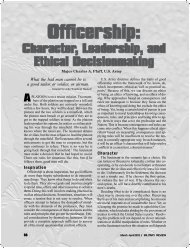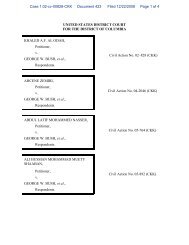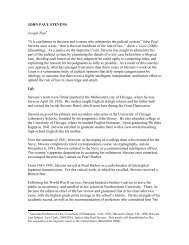Government Merits Brief - Hamdan v. Rumsfeld
Government Merits Brief - Hamdan v. Rumsfeld
Government Merits Brief - Hamdan v. Rumsfeld
You also want an ePaper? Increase the reach of your titles
YUMPU automatically turns print PDFs into web optimized ePapers that Google loves.
39<br />
applicable to “all cases of declared war or of any other armed<br />
conflict which may arise between two or more of the High<br />
Contracting Parties” or of armed conflict between a High<br />
Contracting Party and a “Power[] in conflict” that is not a<br />
High Contracting Party insofar as it “accepts and applies the<br />
provisions” of the Convention. 6 U.S.T. at 3318, 75 U.N.T.S.<br />
at 136. Al Qaeda indisputably is not a “High Contracting<br />
Party” that has ratified the Geneva Convention. Nor can al<br />
Qaeda qualify as a “Power[] in conflict” that could benefit<br />
from the Convention. The term “Power” refers to States that<br />
would be capable of ratifying treaties such as the Convention—something<br />
that a terrorist organization like al Qaeda<br />
cannot do. 14 And even if al Qaeda could be thought of as a<br />
“Power” within the meaning of the Convention, it has not<br />
“accept[ed] and applie[d] the provisions” of the Convention,<br />
but has instead openly flouted them by acting in flagrant defiance<br />
of the law of armed conflict. As a result, al Qaeda and its<br />
members are not entitled to the Convention’s protections. A<br />
contrary interpretation would discourage States from joining<br />
and honoring the Convention. 15<br />
14 See, e.g., G.I.A.D. Draper, The Red Cross Conventions 16 (1958) (arguing<br />
that “in the context of Article 2, para. 3, ‘Powers’ means States capable then<br />
and there of becoming Contracting Parties to these Conventions either by<br />
ratification or by accession”); 2B Final Record of the Diplomatic Conference of<br />
Geneva of 1949, at 108 (explaining that Article 2, para. 3, would impose an<br />
“obligation to recognize that the Convention be applied to the non-Contracting<br />
adverse State, in so far as the latter accepted and applied the provisions<br />
thereof”).<br />
15 The conclusion that the Convention does not apply to conflicts with a<br />
terrorist network like al Qaeda is underscored by the fact that the United<br />
States has refused to ratify protocols that would extend the Geneva Convention<br />
to other types of conflicts and combatants. See Protocol Additional to the<br />
Geneva Conventions of 12 August 1949, and Relating to the Protection of<br />
Victims of International Armed Conflicts (Protocol I), June 8, 1977, 1125<br />
U.N.T.S. 3; Protocol Additional to the Geneva Conventions of 12 August 1949,<br />
and Relating to the Protection of Victims of Non-International Armed Conflicts



